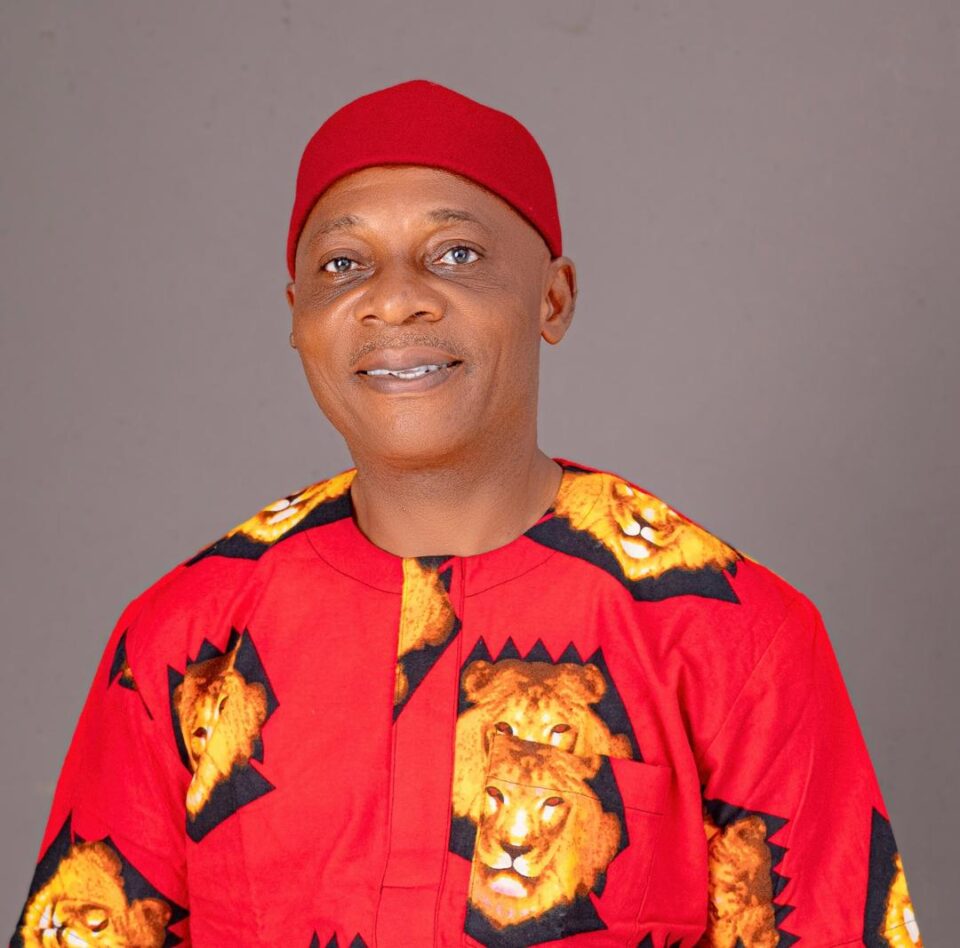By Prince Marcel Nna
In a federal system like Nigeria, local governments are the closest to the people. It articulates the needs of the local communities, channeling the people’s demands and complaints to the state and federal governments for action. It facilitates local governance, ensuring community participation in decision-making as well as provision of infrastructures which is the basic rights of the communities and not a privilege.
Local government councils are responsible for grassroots development and provision of essential services like education, healthcare, and infrastructure. The councils play vital role in implementing national policies at the local level and promote overall socio-economic development.
Maintenance of good roads, good pipe-born water, servicing of health facilities among others are the civic right of the communities. Hence the chairman must be a grass root person who must understand the needs of the people before he can relate same to the state government or any other intervention agency.
Unfortunately, most leaders at the local level could be described as predators of public resources. Those who canvas for the scrapping of that tier of government hinge their arguments on the fact that other tiers of government see local government councils as a tool for political patronage and rewards for those who voted them into power.
Ex-president Olusegun Obasanjo in his address at the inauguration of the Technical Committee on the Review of the Structure of Local Government Councils in Abuja, June 25, 2003 lamented about the sorry state of local governments system.
“What we have witnessed is the abysmal failure of the local government system. It is on record that no time in the history of the country has there been the current level of funding accruing to the local government from the federation account, yet the hope for rapid and sustained development has been a mirage as successive councils have grossly underperformed in their assigned responsibilities” he said.
Collaborating this view is former Governor of Imo State, Ikedi Ohakim who said, “It is obvious that the council administration is not working. The council system has failed woefully in Nigeria. And if nothing is done to salvage the situation, the country will continue to have problems at the grassroots. We have wasted money to the extent that the council system has become an enterprise of a different dimension where some “big men” try to install their housemaids and houseboys so that they can be making returns. The council system has enriched only few individuals who are now being chased by the masses on the streets (Guardian, 27th December, 2007).
Indeed, the local government system needs new life, needs people with ideas, decent entrepreneurs, ambitious leaders, visionary individuals, creative people with capacity to entrench disruptive developments. It is time to end the situation where local government administrators site projects that add no value to the grass root. Most times, some of those projects are awarded as reward for loyalty, to the detriment of the people.
However, Ezeagu Local government is greatly endowed with abundant human and material resources, rich arable land, tourist sites, sparkling spring water and rich cultural heritage.
It has produced leaders that have distinguished themselves in different endeavours namely, the first Chief Judge of Enugu State, the first Jesuit Priest from the South East, the first Vice Chancellor of Enugu State University of Science and Technology, the first female Deputy governor of Enugu state and several eminent personalities. A pilgrimage centre with the biggest crucifix in the Africa is located in Ezeagu and it receives about 5,000 pilgrims monthly.
The major water source to the Enugu metropolis is from our Ajali. Also in Ezeagu is Premier Cashew industry sitting on about 2,000 hectares of land in Oghe which can be processed into a major revenue earner. There is also a large expanse of forest tree plantation a major raw material for paper production.
Just like other local governments, past administrators in Ezeagu have not been able to harness these resources and position the local government for quality transformation and disruptive development. Most of them are visionless, not people oriented and lack good leadership qualities.
Some of the excuses they give for their underperformance is majorly paucity of funds. They hide under the guise of insufficient funding and divert the available funds to maintain their ostentatious life style and reward their cronies. But the main question is “what have the administrators been able to achieve with the little fund that is available to them?”. Does it mean that Ezeagu does not have enough natural resources that can be harnessed to make the people feel the impact of governance even if there are no federal or state allocation?
The quality of life a people enjoys is directly proportionate to the quality of its leaders. When leaders are equipped with the necessary skills and knowledge, they become innovate and committed to building a society that will outlive their generation through lasting pro-people legacy projects.
A visionary leader is crucial for driving sustainable development and progress. Such a leader provides clear direction and purpose, essential for addressing local challenges and capitalizing on opportunities. They inspire and motivate the community, fostering a sense of unity and shared goals, which is vital for collective efforts in improving infrastructure, education, and healthcare at the rural level.
A visionary leader in Ezeagu can anticipate future needs and trends, ensuring that government remains proactive rather than reactive to the challenges of the people. This foresight enables the implementation of innovative solutions and development strategies that align with the community’s long-term aspirations. Additionally, he plays a key role in shaping a positive and collaborative culture, encouraging civic engagement and participation of the people in local governance.
Ezeagu is majorly an agrarian local government. With its natural endowments like rich soil and water, Ezeagu has the capacity to feed the entire Enugu State and as well export some of its produce.
All Ezeagu needs is a chairman who understands the need to create farm clusters, provide extension workers, develop food processing centres for value addition and deploy technology so that rural farmers can migrate from subsistence to agro-allied processing entrepreneurs which will commercialize the sector and bring more revenue to families and the local government.
The next chairman of Ezeagu local government must be able to priortise the needs of the people and draw up actionable execution plan which must be time-boxed with inputs from the people through town hall meetings and other civic engagements.
Ezeagu needs an ambitious leader that can attract investors with capacity to turn some of the natural enclaves in the local government into major tourism sites. Some of those historical sites include: the Okpoko River in Ihuezi Obinofia Ndiuno, Heneke Lake in Obinofia Ndiuno, the Ebechukwu Cave in Ihuezi Obinofia Ndiuno, and Igwu-etiti Amansiodo Oghe, Odukwa cave in Aguobu-Owa and many others.
It is indeed shameful that the entire Ezeagu Local government cannot boast of a commercial bank. Since armed robbers attacked the branch office of United Bank for Africa (UBA) located directly opposite the local government secretaries and beside the police divisional headquarters around year 2002, no administrator has deemed it wise to revive the bank or attract another financial institution into the local government. It goes a long way to explain that past administrators understand nothing about financial inclusion and the importance of a financial institution in targeted commerce and economic development.
Education and knowledge is the foundation of any decent society.
The provision of public school building, equipping of schools, laboratories and skills acquisition centres which will make it easier for the people to learn more skills, acquire new knowledge and play in the international business arena must never be neglected. This will go a long way into transforming Ezeagu youths into ambitious entrepreneurs ready for global opportunities.
There is no doubt that Ezeagu needs a massive market that will equal Orie Oba in Nsukka where all the agricultural produce from the local government will be sold to off-takers. Such a market will be constructed with modern facilities including cold rooms and other food preserving equipment to reduce post-harvest loses that frustrate the efforts of our farmers.
Recently, Ezeagu has become a beehive of criminal activities with Ajalli River, Umulokpa and the boundary between Umumba Ndiagu and Ebenebe fast turning into hide-outs for kidnappers. It is obvious that no development can take place in an unsecured locality. So the chairman must lead the war and mobilize the police to end all forms of insecurity and kidnapping in the local government.
The menace of herders must also be contained. The cattles herders must allow our people to farm and harvest their produce. The chairman must find a way to end this situation with collaboration with the traditional institutions.
The incoming chairman must realize that primary health care centres are constructed and maintained so that children, pregnant women, nursing mothers will receive medical services like immunization and treatments that are either free or at subsidized rates. The local government authorities must liaise with federal, state or World Health Organization’s health programmes and attract more interventions and free medical outreach for the rural communities.
The local government chairman must foster social harmony for social betterment of people at the grassroots which is very veritable for national integration, national evolution and national consciousness.
He must understand the vision and mission of the governor, His Excellency, Dr. Peter Mba and work hand in hand with him to ensure that the local government is prominent in the governors project diary.
Prince Marcel Nna is a political analyst, grass root mobilizer and entrepreneur based in Abuja.



